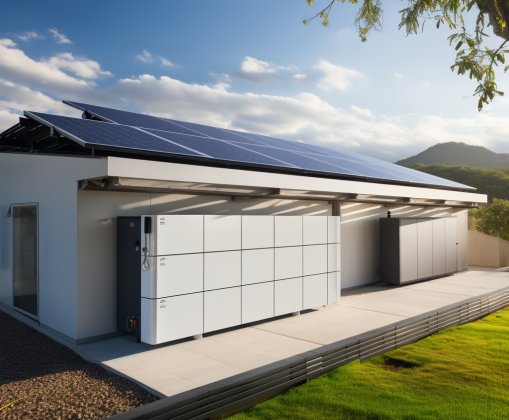
Solar battery storage technology has gained significant attention in recent years as more homeowners look to harness the sun’s power to meet their energy needs. While solar battery storage offers numerous benefits, several myths and misconceptions often lead to confusion. This article will delve into some of the most common solar battery storage myths and separate facts from fiction.
Myth 1: Solar Batteries Store Unlimited Energy
One prevalent misconception is that solar batteries have an unlimited storage capacity, allowing homeowners to accumulate excess energy indefinitely. Solar batteries come in various sizes and abilities and have a finite amount of energy they can store. Oversizing a solar battery system can be costly and inefficient, as excess energy may go unused. Choosing a battery capacity that aligns with your energy consumption patterns and goals is essential.
Myth 2: Solar Battery Systems Are Completely Off-Grid
While solar battery systems can offer a degree of energy independence, they are only partially off-grid solutions for most homeowners. Many residential solar battery setups are designed to operate with the grid, allowing users to draw power from the utility during high energy demand or low solar production periods. This setup ensures a reliable energy supply, even when the sun isn’t shining.
Myth 3: Solar Batteries Require Constant Maintenance
Contrary to popular belief, modern solar battery systems require minimal maintenance. Unlike traditional lead-acid batteries, most lithium-ion batteries in solar setups are virtually maintenance-free. Occasional monitoring and software updates are usually sufficient to keep the system running smoothly. However, it’s essential to follow the manufacturer’s guidelines for maintenance to maximize the battery’s lifespan.
Myth 4: Solar Batteries Pay for Themselves Immediately
While solar batteries can provide long-term savings, they may wait to pay for themselves. The cost of installing a solar battery system and the associated hardware and installation can be substantial. The payback period depends on various factors, including energy consumption, local solar incentives, and the price of electricity. Homeowners should consider their circumstances and conduct a thorough cost-benefit analysis before deciding.
Myth 5: Solar Battery Storage Is Inefficient
Some people believe solar battery storage systems are inefficient and result in energy loss. While it’s true that there is some energy loss during the charging and discharging process, modern battery technologies have improved efficiency significantly. Most high-quality solar batteries have round-trip efficiency rates exceeding 90%, ensuring that the energy stored can be effectively utilized when needed.
Myth 6: Solar Batteries Are Only Beneficial in Sunny Climates
Solar batteries are often associated with sunny climates, but they can also be advantageous in regions with varying weather conditions. Cloudy days or periods of low sunlight can still generate energy through solar panels, which can be stored for later use. Solar battery storage allows homeowners to make the most of their solar panels’ production, regardless of weather patterns.
Myth 7: Solar Batteries Are Environmentally Harmful
There’s a misconception that solar batteries harm the environment due to the materials used in their production and disposal. While it’s true that specific battery chemistries can pose environmental challenges, the industry is actively working on developing more sustainable options. Many modern solar batteries utilize lithium-ion technology, which is less environmentally harmful than older battery chemistries. Additionally, recycling programs are being implemented to reduce the impact of battery disposal.
As solar energy and battery storage become increasingly integrated into residential energy systems, it’s crucial to debunk the myths hindering informed decision-making. By understanding the realities of solar battery technology, homeowners can make well-informed choices that align with their energy goals and contribute to a more sustainable future. Solar battery storage offers numerous benefits, but separating fact from fiction is essential to maximize its potential.